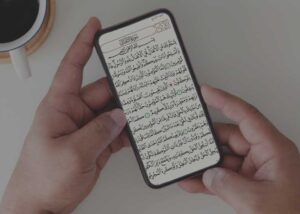Quran
Hadith
Islamic Text
بِسْمِ اللَّهِ الرَّحْمَنِ الرَّحِيمِ
In the Name of Allah Most Merciful Most Kind
Short Answer
Yes, Wudu (ablution) and even Ghusl (ritual bathing) is permitted with Zamzam water. Performing Istinjaa (cleaning the private area) and washing physical impurity (e.g. blood) is not permitted.
Explanation
ثُمَّ أَفَاضَ رَسُولُ اللهِ صَلَّى اللهُ عَلَيْهِ وَسَلَّمَ، فَدَعَا بِسَجْلٍ مِنْ مَاءِ زَمْزَمَ، فَشَرِبَ مِنْهُ وَتَوَضَّأَ
Then the Messenger of Allah ﷺ left. He ﷺ called for a container of Zamzam water. Then he ﷺ drank from it and performed ablution (Wudu) with it. (Musnad Ahmad 564, Hasan).
In the Hadith narration above, we find the Prophet ﷺ performing Wudu (ablution) with Zamzam water. Therefore, it is not acceptable to consider the performance of Wudu with Zamzam to be wrong or sinful.
Classical Scholars
The Hadith above is a sound (Hasan) narration. Imam al-Shawkani mentioned it and then said the following:
وَهَذَا إسْنَادٌ مُسْتَقِيمٌ. (نيل الأوطار)
This is a sound (Mustaqeem) chain. (Imam al-Shawkani, Nayl al-Awtar).
It is due to the clear Hadith evidence that Hanafi scholars had no concern with performing Wudu with Zamzam water. They extended it further to Ghusl (washing the entire body) too. Despite the clarity of the Masalah (legal issue) in the books of the Hanafi Madhab, we do find many followers of the Hanafi Madhab deeming it disliked to make wudu with Zamzam.
لا يكره الوضوء والاغتسال بماء زمزم. (البناية شرح الهداية)
Wudu and Ghusl is not disliked with Zamzam water. (Imam al-Ayni, al-Binayah Sharh al-Hidayah).
ويكره الاستنجاء بماء زمزم لا الاغتسال. (حاشية على مراقي الفلاح شرح نور الإيضاح)
It is disliked to clean the private parts (Istinjaa) with Zamzam water. It is not disliked to bathe (Ghusl) with it. (Imam Ahmad bin Muhammad al-Tahtawi, Haashiyah ala Maraaqi al-Falah).
In the Nass (text) below, Imam Ibn Abideen explains that the concern with Zamzam arises when one is cleaning physical impurity. Therefore, cleaning blood or urine with Zamzam water is not permitted. Clearly then, the performance of Istinjaa (cleaning the private areas after relieving oneself) is not permitted. Istinjaa will inevitably lead to exposing Zamzam to impurities, which is not permitted.
(وَمَاءِ زَمْزَمَ) بِلَا كَرَاهَةٍ
(قَوْلُهُ: بِلَا كَرَاهَةٍ) أَشَارَ بِذَلِكَ إلَى فَائِدَةِ التَّصْرِيحِ بِهِ مَعَ دُخُولِهِ فِي قَوْلِهِ وَآبَارٍ وَسَيَذْكُرُ الشَّارِحُ فِي آخِرِ كِتَابِ الْحَجِّ أَنَّهُ يُكْرَهُ الِاسْتِنْجَاءُ بِمَاءِ زَمْزَمَ لَا الِاغْتِسَالُ. اهـ. فَاسْتُفِيدَ مِنْهُ أَنَّ نَفْيَ الْكَرَاهَةِ خَاصٌّ فِي رَفْعِ الْحَدَثِ بِخِلَافِ الْخَبَثِ. (رد المحتار على الدر المختار)
Imam al-Haskafi: And (Wudu is permitted) with Zamzam water without dislike.
Imam Ibn Abideen: His saying: without dislike, he is specifying it despite it being included in his statement ‘and wells.’ The commentator will mention, at the end of the book of Hajj, that it is disliked to use Zamzam water to clean the private parts (Istinjaa). However, it is not disliked to use it for bathing. Therefore, it is understood from this that the negation of dislike is specific to removing ritual impurity. As opposed to physical impurity. (Radd al-Muhtaar).
The position of the Hanafi Madhab is clear. Wudu and Ghusl is permitted with Zamzam water. However, anything that exposes Zamzam water to physical impurities is not permitted. Not only is it permitted to use Zamzam for Wudu, sometimes it becomes obligatory.
Hanafi scholars have mentioned in their books that a person cannot perform Tayyamum if he has Zamzam water. Rather, he is obliged to use the Zamzam water to perform Wudu. They added that this remains the case, even if he wants to gift the water to someone.
Concluding remarks
When a person lacks knowledge of the Sunnah it is a concern. However, the problem is exacerbated when such a person feels he is able to rebuke others for their religious practices. Such people often end up denouncing practices that are found in the Sunnah. The above is an example of this. Another common example is praying in shoes or sandals.
The Muslim must be cautious and not speak about the Deen (religion) without sufficient knowledge. Speaking without knowledge can lead to one directly contradicting the Holy Quran and the Noble Sunnah.
And Allah Most High Knows Best.
–Answered by Shaykh Noorud-deen Rashid (08.01.24)






